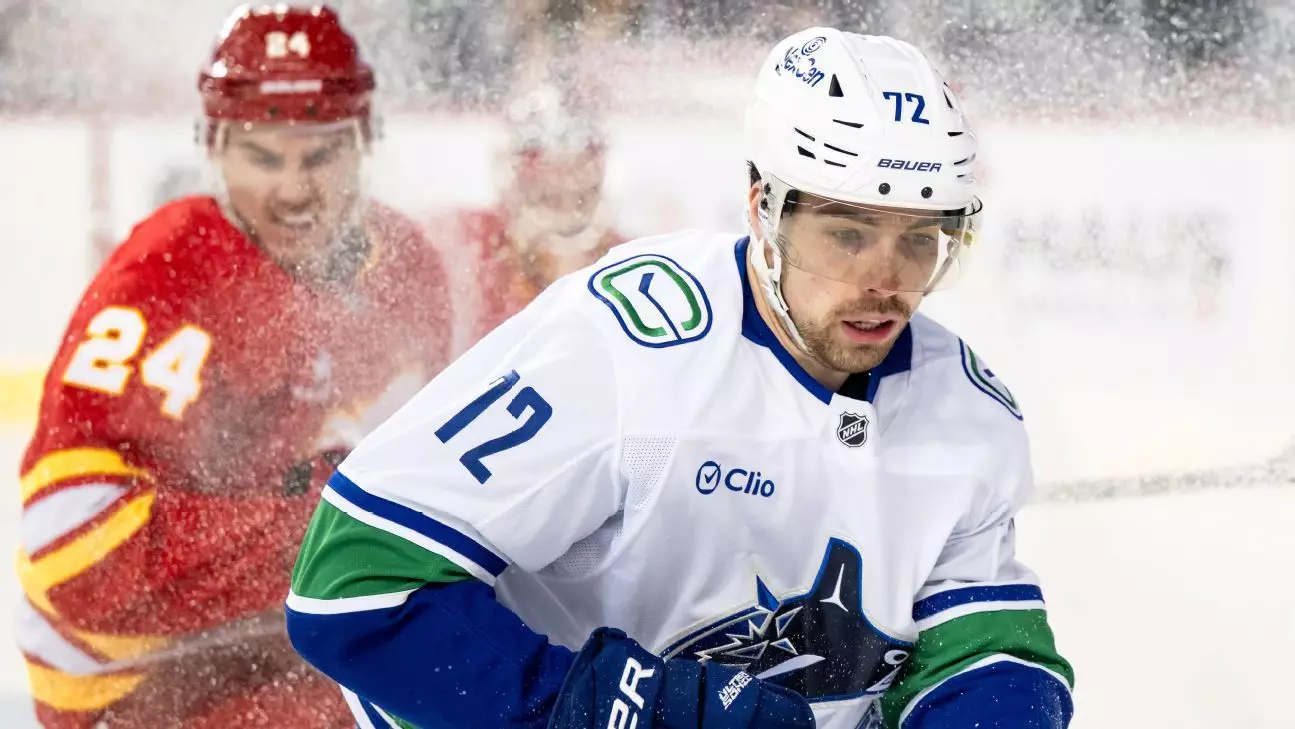The Vancouver Canucks are grappling with an array of injuries and setbacks that threaten to derail their season, and the anticipated return of center Filip Chytil is under significant scrutiny. Acquired from the New York Rangers as part of the J.T. Miller trade, Chytil has not skated in an NHL game since March 15 due to a concussion suffered after a hit from Chicago’s Jason Dickinson. Coach Rick Tocchet’s recent comments indicate a precarious outlook for Chytil, as he navigates the labyrinth of recovery. The uncertain nature of his condition underscores a broader conversation about player safety and the long-term consequences of head injuries in sports.
Chytil’s recovery has been characterized by fluctuation—good days interspersed with bad, leaving coaches and fans alike questioning the feasibility of his return this season. Tocchet’s cautious stance encapsulates a larger ethos in professional sports: the health of players must take precedence over competitive ambition. As Chytil confronts this particular hurdle, it’s imperative to consider the psychological toll these injuries can bear, alongside the physical ramifications. The notion that he may miss the remainder of the season is a troubling reality for a team already contending with several injured stars.
The Ripple Effect of Injuries
Chytil is not the only name on an elongated injury list that is complicating the Canucks’ playoff aspirations. The absence of Elias Pettersson since March 22 and the ongoing issues with captain Quinn Hughes and winger Brock Boeser reflect a team teetering on the edge of desperation. Pettersson’s status remains unclear, indicated as day-to-day by Tocchet, but the collective impact of these injuries is palpable. Each player lost not only dilutes the talent on the ice but also erodes team morale and complicates tactical game plans.
Such circumstances beg the question: how does a team foster a winning culture amidst ongoing adversity? Tocchet’s remarks about team culture become critical here; he notes the importance of identifying who is “all in.” The Canucks’ trajectory this season is a testament to the resilience necessary in professional sports, but as injuries mount, so too does the risk of eroding confidence. The chemistry between the players could be shaken, with concerns about whether teammates can hold each other accountable while battling through personal physical challenges.
A Team United in Adversity
Despite the challenges, the Canucks remain determined in their pursuit of a playoff spot, currently vying with teams like the Minnesota Wild and the Calgary Flames for the final positions in the Western Conference. Even with the odds stacked against them, players such as all-star goalie Thatcher Demko express a steadfast commitment to pushing through, emphasizing the focus on effort and teamwork rather than dwelling on injuries. His determination to maintain a unified front, despite the physical toll observed, evokes the essence of sportsmanship and the heart that drives athletes to compete.
Demko’s comments on team solidarity highlight an essential aspect of any competitive environment—the ability to come together during difficult times cultivates resilience. It is this mental fortitude that can turn a season around, making it less about individual accolades and more about mutual support and collective effort. The Canucks may not have the luxury of their full roster, but the drive to win, regardless of the challenges, is a powerful motivator that can spark critical performance.
Hope Amidst Uncertainty
As the Canucks prepare for their next match against the Seattle Kraken, the overarching narrative is laden with both hope and uncertainty. Coach Tocchet’s assessment that Chytil’s good days aren’t as bleak as his previous concussion experiences offers a glimmer of optimism, although caution remains the name of the game. The hope isn’t just for Chytil’s return, but for the entire group to coalesce into a formidable unit capable of making a push for the playoffs.
Examining the broader implications of this situation reveals a pivotal moment for the organization. The outcome of the season could hinge not only on the physical return of key players but also on the psychological resilience they cultivate in the face of adversity. As they navigate this tumultuous period, the mantra of moving forward—day by day, game by game—will very much echo in the hearts of every member of the Canucks. The willingness to support one another through struggles may define their path forward, regardless of the challenges ahead.


Leave a Reply